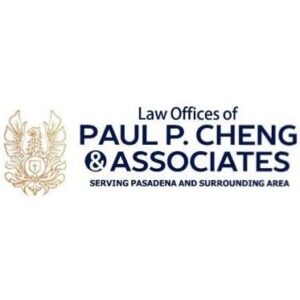Employment Law & Compliance Highlights from the Law Offices of Paul Cheng
FEDERAL
DOL Publishes Final Overtime Rule: New Salary Thresholds Announced
The U.S. Department of Labor (DOL) has issued a final rule increasing the minimum salary thresholds for exemptions under the Fair Labor Standards Act (FLSA). Effective July 1, 2024, the salary threshold for the “white-collar” exemptions will rise to $844 per week ($43,888 annually), while the threshold for highly compensated employees (HCE) will increase to $132,964 annually. Starting January 1, 2025, these amounts will further increase to $1,128 per week ($58,656 annually) and $151,164, respectively. The rule mandates updates every three years, with notices published in the Federal Register and on the Wage & Hour Division’s website. Employers should monitor developments closely due to anticipated court challenges that could affect the implementation timeline.
FTC Finalizes Ban on Noncompete Agreements
The Federal Trade Commission (FTC) has finalized a rule prohibiting noncompete agreements for most workers, effective September 4, 2024. While senior executives can retain existing noncompetes, such agreements for other employees will become unenforceable. Employers outside the FTC’s jurisdiction are not subject to this rule. Affected employers must notify workers in writing that their noncompetes are void, using the FTC’s provided model notices available in seven languages. Legal consultation is advised for navigating these changes.
EEOC Implements Pregnant Workers Fairness Act
The Equal Employment Opportunity Commission (EEOC) has released final rules for the Pregnant Workers Fairness Act (PWFA), effective June 18, 2024. The PWFA requires employers with 15 or more employees to offer reasonable accommodations for limitations due to pregnancy, childbirth, or related medical conditions. The rule clarifies coverage criteria, types of conditions, and the process for requesting accommodations, providing numerous examples to guide compliance.
EEOC Updates Workplace Harassment Guidance
The EEOC has updated its guidance on workplace harassment, effective April 29, 2024. The “Enforcement Guidance on Harassment in the Workplace” reflects legal changes since 1999 and includes over 70 examples of unlawful harassment. The guidance aims to inform employers, employees, and legal practitioners but does not carry the force of law. The EEOC has also published educational resources to aid understanding and compliance.
USCIS Revises Form I-9 Guidance
U.S. Citizenship and Immigration Services (USCIS) has revised its guidance on Form I-9 Lists of Acceptable Documents. The I-9 Central website now includes enhanced functionality and sample images, facilitating easier access to information. These updates do not alter the list of acceptable documents or impose new requirements on employers.
OSHA Clarifies Worker Representation During Inspections
On April 1, 2024, OSHA published a final rule, effective May 31, 2024, clarifying employee representation during workplace inspections. The rule specifies that employee representatives can be non-employees if they possess relevant expertise or language skills. Employer consent remains necessary for inspections, upholding Fourth Amendment rights, unless OSHA obtains a warrant.
DOL Issues AI in the Workplace Guidance
The Department of Labor’s Wage & Hour Division has issued a Field Assistance Bulletin (FAB) regarding the use of artificial intelligence in the workplace. The FAB addresses potential Fair Labor Standards Act (FLSA) and Family & Medical Leave Act (FMLA) compliance issues arising from automated systems used for scheduling, timekeeping, and employee tracking. It emphasizes the need for human oversight to mitigate risks and ensure compliance.
This newsletter shares information on legislative and regulatory developments that may affect your business. Consultation with your Human Resources Professional, and in some cases legal counsel, is recommended to address any questions or concerns you may have that are related to these developments. As always, it is your obligation as the employer to ensure your compliance with applicable laws and regulations.. Please contact our team at (888) 356-4937 or info@pprclaw.com with any questions regarding state-specific guidance or application to your workplace.







